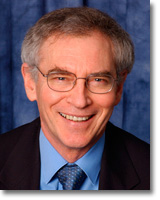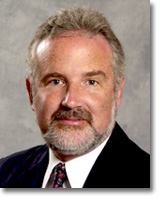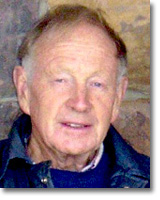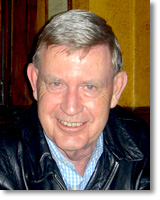APS College of Forensic Psychologists
2011 APS Forensic Psychology National Conference
Keynote speakers
Barry Nurcombe
MA (Brown), MBBS (U.Qld) (Hons I), DPM (U.Melb), MD (U.Qld), FRACP, FRANZCP, FAPA, FAACAP, MRC Psychiat, Cert. Of the ABPN in General and Child Psychiatry, Emeritus Professor in Child & Adolescent Psychiatry, The University of Queensland and Vanderbilt University.
Abstract: The Purpose & Ethics of Forensic Psychology ![]()
Barry Nurcombe graduated in Medicine from The University of Queensland (1955). He trained in Psychiatry at the University of Melbourne, and in Child Psychiatry at Harvard University and The Children’s Hospital Medical Center, Boston. He returned to Australia and became Senior Lecturer/Associate Professor at the University of New South Wales, and Director of Paediatric Psychiatry, Prince of Wales Hospital, Randwick (1967-76). He then returned to the United States where he was Professor of Child & Adolescent Psychiatry at the University of Vermont (1976-84), Brown University (1984-89), and Vanderbilt University (1989-96). He returned to Australia to become Foundation Professor in Child and Adolescent Psychiatry at the University of Queensland (1996-2001). His main research interests have been in language stimulation programs for culturally disadvantaged children; improving the sensitivity of the mothers of low birthweight children; diagnostic reasoning; and the treatment of sexually abused children. He now works full-time in private forensic practice, particularly in Residence/Contact disputes in the Family Court, Personal Injury cases, Medical Negligence, Dangerous Offenders, and Criminal Compensation. He has published over 100 original scientific articles, numerous book chapters, and co-authored ten books (including Child Mental Health and The Law, Free Press, 1996; Child Mental Health Consultation to Hospitals, Schools and Courts, APA Press, 1995; and Current Diagnosis & Treatment in Psychiatry, McGraw-Hill, 2006).
Professor Alfred Allan 
Abstract: Professional conduct in forensic psychology: Finding the right balance ![]()
Alfred Allan qualified, and practiced as both a lawyer and a psychologist and has taught law, psychology and professional ethics in Law, Medical and Psychology Schools in South Africa and Australia. He is a member of the inaugural Psychologists Board of Australia and a Fellow of the Australian Psychological Society (APS). He has served on the boards of national professional organisations and is a past president of the of the Australian and New Zealand Association for Psychiatry, Psychology and Law and a past chair of the APS College of Forensic Psychologists, and the Ethics Committee of the APS. He is the recipient of a range of awards for this teaching, research and professional service. These include the 2010 Australian Psychological Society's President's Award for Distinguished Contribution to Psychology and the 2010 Australian Psychological Society's College of Forensic Psychologists' award for his important and significant contribution to the field of forensic psychology. He is on the editorial committee of Psychiatry, Psychology and Law and the editorial board of Philosophy, Ethics, and Humanities in Medicine. His current research interests are: Health and professional law, ethics, policy and practice; and Apology, forgiving and reconciliation.
Karen Franklin, PhD 
Abstract: Global containment and escape: Alternate visions for forensic psychology ![]()
Karen is a licensed forensic and clinical psychologist in the San Francisco Bay Area and an instructor at the California School of Professional Psychology (Alliant International University). She specialises in the evaluation and treatment of criminal defendants.
Karen’s research on the motivations of hate crime offenders was awarded a Monette/Horwitz Trust Award and a Harry Frank Guggenheim Fellowship. Her peer-reviewed publications have appeared in the ‘American Behavioral Scientist’, the ‘Journal of Interpersonal Violence’, the ‘Encyclopedia of Violence’, the ‘Encyclopedia of Criminology’, the ‘Journal of Forensic Psychology Practice’, and other venues.
A former criminal investigator and legal affairs reporter, she received postdoctoral training in forensic psychology through the University of Washington.
Karen is a widely recognised expert on the psychosocial motivations of hate crime perpetrators. Her published research on this topic is extensively cited in popular and scientific venues and has garnered her two awards: the Research and Scholarship Award from the Monette/Horwitz Trust and the Harry Frank Guggenheim Dissertation Fellowship. In 1997, she was invited to present her findings at a United States Congressional Briefing.
Professor Thomas Grisso
Abstract: Adolescents’ mental disorders and violent offending ![]()
Thomas is Professor of Psychiatry, Director of Psychology, and Director of the Law-Psychiatry Program at the University of Massachusetts Medical School. His research interests include clinical forensic assessment in criminal and juvenile cases, developmental issues in juvenile law, mental health needs of youths in the juvenile justice system, and risk of violence in adults and youths with mental disorders.
Associations providing special acknowledgement of Dr Grisso’s research contributions have included the American Psychological Association’s Award for Distinguished Contributions to Research in Public Policy (1995), the American Psychiatric Association’s Isaac Ray Award (2005), an honorary Doctor of Laws degree from the John Jay College of Criminal Justice (1998), and an Honorary Fellow Award by the Royal College of Psychiatrists (U.K.).
Professor Leslie Morey
Abstract: Response bias in assessment of psychopathology: Issues and challenges ![]()
Leslie is Professor of Psychology at Texas A&M University. He received his Ph.D. in Clinical Psychology from the University of Florida, and has served on the faculty at Vanderbilt University, Harvard Medical School, the Yale University School of Medicine, and the University of Tulsa.
He has published over 100 articles, books, and chapters on the assessment and diagnosis of mental disorders. He is the author of the Personality Assessment Inventory, Personality Assessment Screener, and the Interpretive Guide to the Personality Assessment Inventory, and has conducted training seminars and workshops on these instruments for the past decade.
Professor Don Thomson
Abstract: Best interests of the child: Challenges for courts and psychologists ![]()
Don’s career has been marked by many achievements. These include, albeit in part: his role in the development of several postgraduate forensic psychology courses in Australia; his work as a barrister at the Victorian Bar; his contribution to professional bodies such as the Australian Psychological Society, the Australian and
New Zealand Association of Psychiatry, Psychology and Law, the European Association of Psychology and Law, the Victorian Psychological Council; his role to law reform commissions and advisory committees; and his lifelong interest in context and cognition work.
In particular, his association (as a fledging scientist) with the legendary Endel Tulving gave rise to the classic experiments which bear their names (see Thomson & Tulving, 1970; Tulving & Thomson, 1971; 1973).
Professor Paul Wilson OAM 
Abstract: Miscarriages of justice and wrongful convictions: what role for the forensic psychologist? ![]()
Currently Chair of Criminology and Forensic Psychologist at Bond University, Paul was also Foundation Dean of Arts at the Queensland Institute of Technology (1991-1993) and Dean Humanities and Social Sciences at Bond University (1996-2001).
Prior to these appointments, he was Acting Director, and for six years, Director of Research at the Australian Institute of Criminology (1986-1991). Paul has given evidence and written reports in many major cases involving violent offenders, the effects of solitary confinement (and of imprisonment generally), and in a landmark case involving the effects of forced settlement of indigenous Australians from their ancestral homes (the Alwyn Peters case).
He has held academic appointments at the University of Queensland and a number of visiting professorships at American Research Institutes and Universities. Paul has also been a Fulbright Scholar and held the prestigious Library Fellowship at Rutgers University’s School of Criminal Justice.
Paul is the author or co-author of 30 books on crime and related social issues, the author of hundreds of academic journal articles and research reports on forensic and criminological issues. He was also a regular columnist for the Courier Mail and the Herald-Sun for a number of years and has taken part in many media debates about crime and forensic issues.
He is author or co-author of books such as ‘Black Death White Hands’, ‘Murder in Tandem and Murder of the Innocents: Child Killers and their Victims’, ‘The Australian Criminal Justice System’ and more recently, books dealing with miscarriages of justice such as ‘Who Killed Leanne Holland’ and ‘Five Drops of Blood’.
In 2003, Paul was awarded the Order of Australia Medal for services to criminology. He is a listed expert in Psychology and Criminology to the International Criminal Court in The Hague. His recent publications and research have centred on miscarriages of justice and the characteristics of those involved in genocide.



